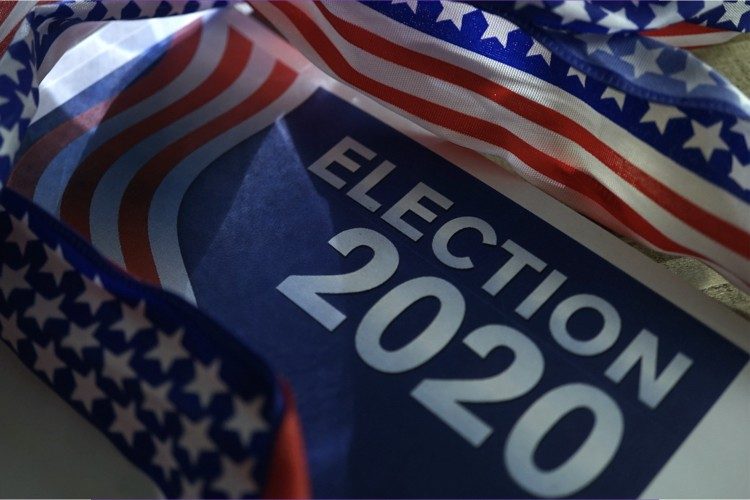
The South Carolina state election commission (SEC) is refusing to release voting records from 2020 in response to a citizen-led election-integrity group’s Freedom of Information Act (FOIA) request.
And the clock is ticking.
Election law allows the government to destroy those records on September 3, 2022, which marks 22 months since polls closed on November 3, 2020.
In response to SEC’s refusal, six state legislators are rallying to their constituents’ aid with a letter to Attorney General Alan Wilson. Dated August 5 and published Wednesday at The Gateway Pundit, the letter explains that the “release of these records allows citizens … to evaluate trends in voting patterns which might indicate susceptibility to electronic manipulation by bad actors.”
The data requested is known as the Cast Vote Record (CVR) and is an index of votes that contains no information regarding individual voters. The lawmakers point out that many other states have already released identical CVR information, naming California, Colorado, Florida, Georgia, Illinois, Michigan, Nevada, and New Jersey as examples.
Regardless, Wilson is using the state constitution’s secret ballot stipulation as an excuse to deny FOIA requests for the records. “If the CVR does identify voters, or if the ballots themselves can be used to identify voters,” query the representatives, “then we would ask whether the SEC has failed in its Constitutional duty to protect the secrecy of the vote.” They cite the state constitution’s requirement of public counting of votes, and they rhetorically ask, “Is not refusal to release the ballots to the public for counting a violation of the State Constitution?”
The FOIA request stems from investigations by the grassroots group SC Safe Elections. Members canvassed eight of 46 counties in the state and released results in February. Among the findings:
There were thousands of votes … that were counted outside of the legal voting dates for the 2020 election.… [Thousands] were made from incomplete addresses, for example, a street address with no number or an NA listed as the number or address.
More than 24,000 votes fell into these two categories. Thousands more were executed prior to voter registration. Canvassers also discovered more than 2,500 phantom votes (those cast by a person who had moved or died prior to the election) and a large number of people who voted from commercial property addresses, in violation of state law. Canvassing teams found votes cast from UPS and FedEx store addresses, vacant lots, and residences where voters attested they had never lived. They also collected numerous affidavits from people who said they had voted, but the voter roll indicated they had not.
Based on such results, SC Safe Elections made the following conclusions and recommendations:
Conclusions
Registrations appear unusually high and to be a source of phantom votes.
Database management seems lacking.
Our voter rolls are not being properly maintained or purged of ineligible voters.
There is sufficient suspicion for a compliance study of our state’s 2020 election and preservation of evidence (paper ballots and images of servers).
Recommendations
Return to paper poll books where every registered voter is validated annually.
Return to paper ballots which are serial numbered. Use the same ballots for mail-in, absentee, early voting and election day.
Go to single-day, in-person elections with strong ID-photo and signature.
Establish rare exceptions for absentee voting <1%.
Hand count the ballots and votes.
Voter records need to be completely transparent and accessible to all individuals. Voter rolls should be free for those who wish to audit the outcome.
Find an alternative to ERIC [Electronic Registration Information Center, a nonprofit organization that purports to assist states in improving voter-roll accuracy] and a process that properly cleans the rolls.
The SEC needs more accountability; impose fines and penalties for noncompliance.
Fund a compliance study that looks into the 2020 election (analysis of the paper ballots).
“Analysis of the Cast Vote Records (CVRs) from the 2020 General Election would allow our experts to decipher whether a thorough audit is necessary,” reads the SC Safe Elections website. The group is calling for SEC to halt any plans to delete or purge 2020 election data until forensic audits can be performed.
The 2020 election is not the only event under the microscope. The watchdog organization has also exposed aberrations in this year’s primary, including voting-machine glitches, ballot errors and chain-of-custody breakdowns, certified voting equipment missing tamper-resistant seals, and same-day voter photo IDs issued without proper documentary proof. Moreover, the organization’s cyber-security team “found over 100 vulnerabilities” on machines used in the 2020 election and the 2022 primary.
Among their “urgent entreaties” are requests to end electronic voting altogether, and to “hold lawbreakers accountable and reconstitute the SEC.”




